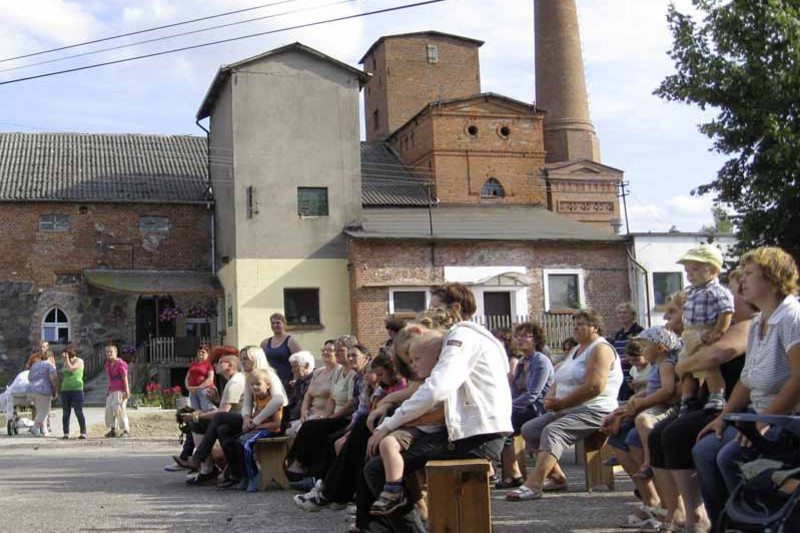The Juchowo Village Project – Diverse Activities in Agriculture

In the diverse cultural landscape of Western Pomerania in North-West Poland, the village project Juchowo-Radacz-Kądzielnia was organized in 2001 by the Stanisław Karlowski Foundation. There, a number of families from Central and Western Europe, with a great deal of pioneer spirit and competence, worked together with Polish workers to build a farm which operates according to the principles of biodynamic farming. The entire operation is managed jointly, whereby each member is responsible, in entrepreneurial fashion, for one area. The agriculture of the villages of Juchowo, Radacz and Kądzielnia form the basis of the village project. The Software AG Foundation supports exclusively non-profit activities related to this project - ranging from research to training, pedagogy to social therapy.
The non-profit Stanisław Karłowski Foundation holds ownership of the land, buildings, and machines, which were purchased with financial assistance from the Software AG Foundation and other foundations. This ensures the long-term viability of the biodynamic approach and protects the project from speculation. Activities in the areas of education and social therapy are developed and realized in close cooperation with biodynamic agriculture as a part of the village project. The overall project is developing more and more into a model farm and a teaching programme for Central and Eastern Europe that is dedicated to research, issues surrounding biodynamic and ecological / organic agriculture, and training and continuing education of workers on biodynamic farms.
Since the land - which had more or less lain fallow since the time of reunification - could be extensively cultivated, it was possible to begin with early scientific experiments, for example regarding reduced tillage of the soil. As a part of this research, the project has been breeding cattle for life-long performance since 2005. The breeding project “cow families and naturally breeding bulls” carried out by Dr. Günther Postler and Sebastiaan Huisman is associated with the project. A herd with two different breeds (“Braunvieh” and “Schwarzbunt”) has already been established that forms the basis of the breeding project and will enable further research. There are currently over 250 milk cows, 400 calves, 16 bulls, and 50 steers. The educational initiative includes, to date, a holiday school in which children and adolescents can participate in creative workshops, as well as diverse activities for school classes from Poland and Germany in the form of agricultural internships and nature experiences on the farm.The nature education programs for schools and kindergartens in the region also enjoy enormous popularity.
The most recently started project involves social therapeutic work undertaken in cooperation with six facilities in the region. At the moment, a total of 62 individuals from cooperating institutions take turns working on the farm, for example creating syrups and herbal elixers; packaging herbs and other products; collecting wild herbs; assisting in the herb and fruit gardens; working in the drying plant; caring for the plants on the foundation's premises; and work in the kitchens. More workshops and residential opportunities for people with disabilities will be created locally in the medium term.
The village project creates new impulses for the development of agricultural regions in Central and Eastern Europe. It does so in close cooperation with biodynamic agriculture and associated aspects such as research, education and training, social therapy, and the formation of social life.
